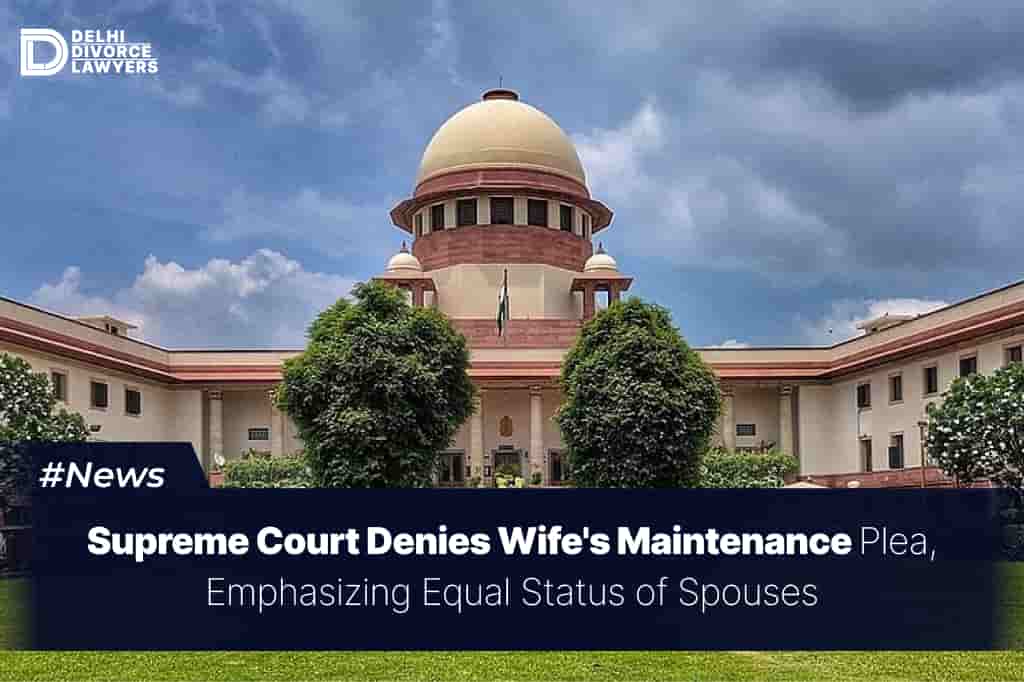In a significant ruling, the Supreme Court has denied a wife’s plea for maintenance, emphasizing that both spouses hold equal status in marriage. The court’s decision marks an important precedent in cases related to spousal support, highlighting the principle of financial independence and fairness between partners.
The case involved a wife seeking maintenance from her husband despite being financially capable of supporting herself. The husband contested the claim, arguing that both partners were on equal footing professionally and financially. After hearing arguments from both sides, the Supreme Court ruled in favor of the husband, stating that maintenance cannot be awarded solely based on marital ties when the wife is in a position to sustain herself.
The ruling reinforces the idea that maintenance laws exist to provide financial stability to spouses who are genuinely in need, rather than serving as an entitlement. The court underscored that in cases where both individuals are equally qualified and capable of earning, neither party should be unfairly burdened with financial obligations. This judgment is seen as a step toward gender neutrality in matrimonial disputes, ensuring that the principles of fairness and equality are upheld.
Legal experts believe that this decision will have a broader impact on maintenance claims, encouraging courts to assess each case based on financial circumstances rather than traditional gender roles. The judgment serves as a reminder that marriage does not automatically entitle one spouse to financial support if they have the means to sustain themselves.
By rejecting the wife’s claim, the Supreme Court has reaffirmed that maintenance should be granted only when justified by economic necessity. This landmark ruling is expected to influence future cases, promoting a balanced approach in maintenance disputes and strengthening the legal framework supporting gender equality in matrimonial law.

